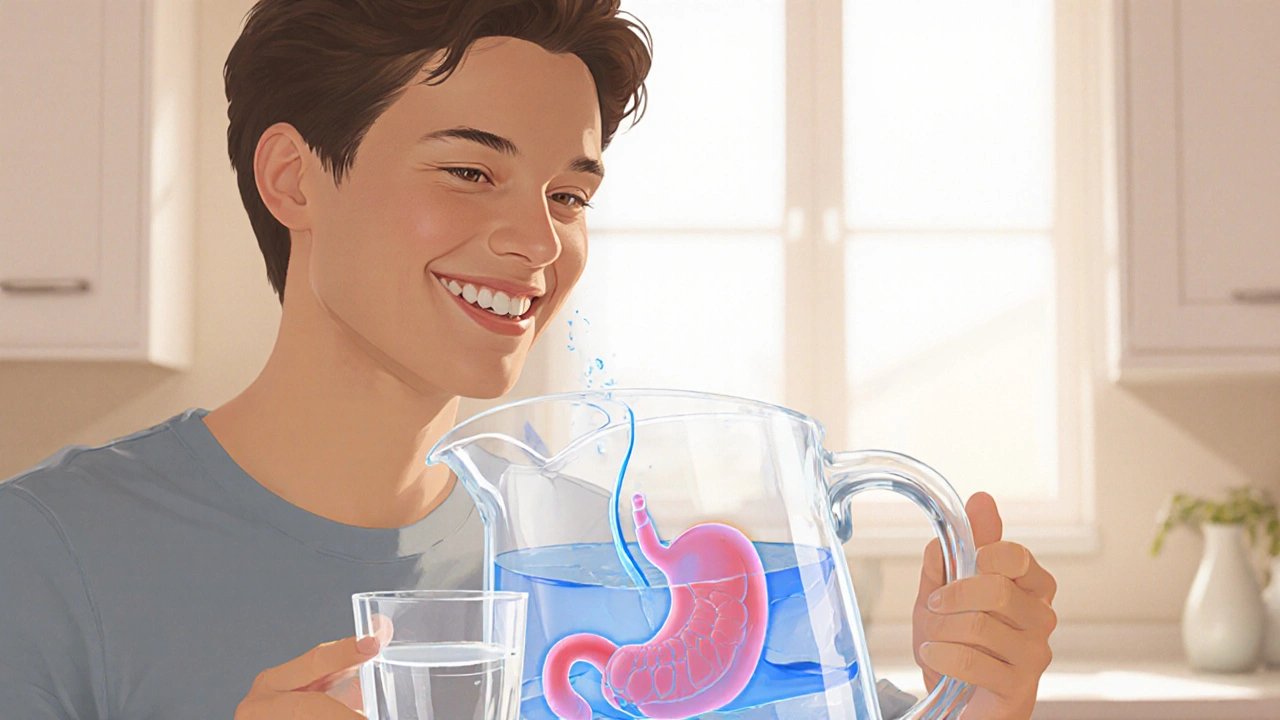Dehydration: What It Is and How to Fight It
Ever feel light‑headed, have a dry mouth, or notice fewer bathroom trips? That’s your body shouting that it’s low on water. Dehydration happens when you lose more fluid than you take in, and it can sneak up on anyone—whether you’re exercising, working in a hot office, or just forgetting to drink enough throughout the day.
While a mild dip in hydration usually fixes itself after a glass of water, severe dehydration can affect your heart, kidneys, and even your mood. The good news? Most cases are preventable with a few easy habits.
Common Signs Your Body Needs Water
Spotting dehydration early saves you from feeling awful later. Look out for these clues:
- Thirst – the obvious one, but don’t wait until you’re parched.
- Dark yellow urine – clear or light straw is a sign you’re on track.
- Dry lips or mouth – a simple way to check without a mirror.
- Headache or dizziness – your brain reacts quickly when fluid levels drop.
- Fatigue – low water can make even a short walk feel exhausting.
If you notice two or more of these, grab a drink right away. For athletes or people who sweat a lot, replace electrolytes too; plain water works for most everyday situations.
Practical Tips to Prevent Dehydration
Keeping hydrated doesn’t have to be a chore. Here are some bite‑size actions you can start today:
- Carry a reusable bottle. Having water within arm’s reach makes sipping automatic.
- Set a reminder. A phone alarm every hour nudges you to drink, especially on busy days.
- Eat water‑rich foods. Cucumber, watermelon, oranges, and soups add fluids without you even noticing.
- Adjust for weather. Hot, dry, or windy days raise fluid loss—up your intake by at least an extra 500 ml.
- Watch alcohol and caffeine. Both can act as mild diuretics. Pair a coffee with a glass of water, or limit alcoholic drinks to one per hour.
When you’re sick, fever, vomiting, or diarrhea can speed up fluid loss. In those cases, oral rehydration solutions (ORS) or sports drinks with electrolytes are better than plain water alone.
For anyone on medication, check the label. Some drugs, like certain diuretics or antihistamines, increase fluid needs. If you’re unsure, ask a pharmacist or your doctor.
Finally, listen to your body. Thirst isn’t just a habit; it’s a warning system. By making water a regular part of your routine, you protect your kidneys, keep your skin glowing, and avoid the foggy brain that comes with mild dehydration.
Remember, staying hydrated is a simple, low‑cost way to boost overall health. Keep a bottle handy, pay attention to what your body tells you, and you’ll feel the difference in no time.

Hydration's Role in Preventing Heartburn: Why Staying Hydrated Matters
Learn how proper hydration dilutes stomach acid, supports the esophageal sphincter, and prevents heartburn. Practical tips, fluid guidelines, and FAQs help you stay comfortable.